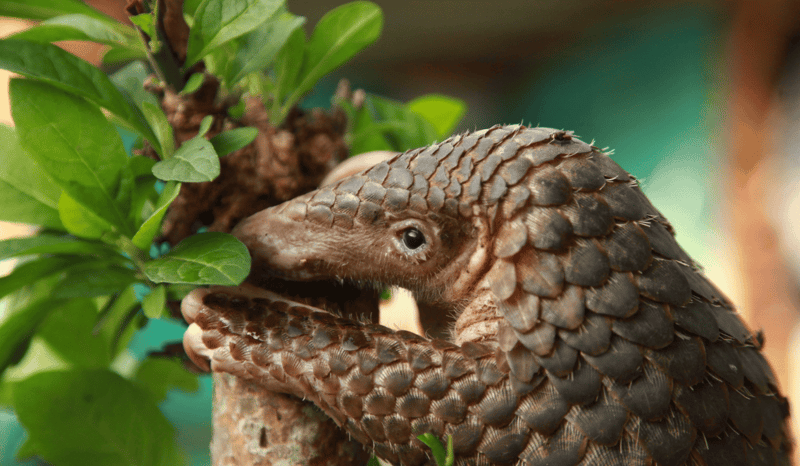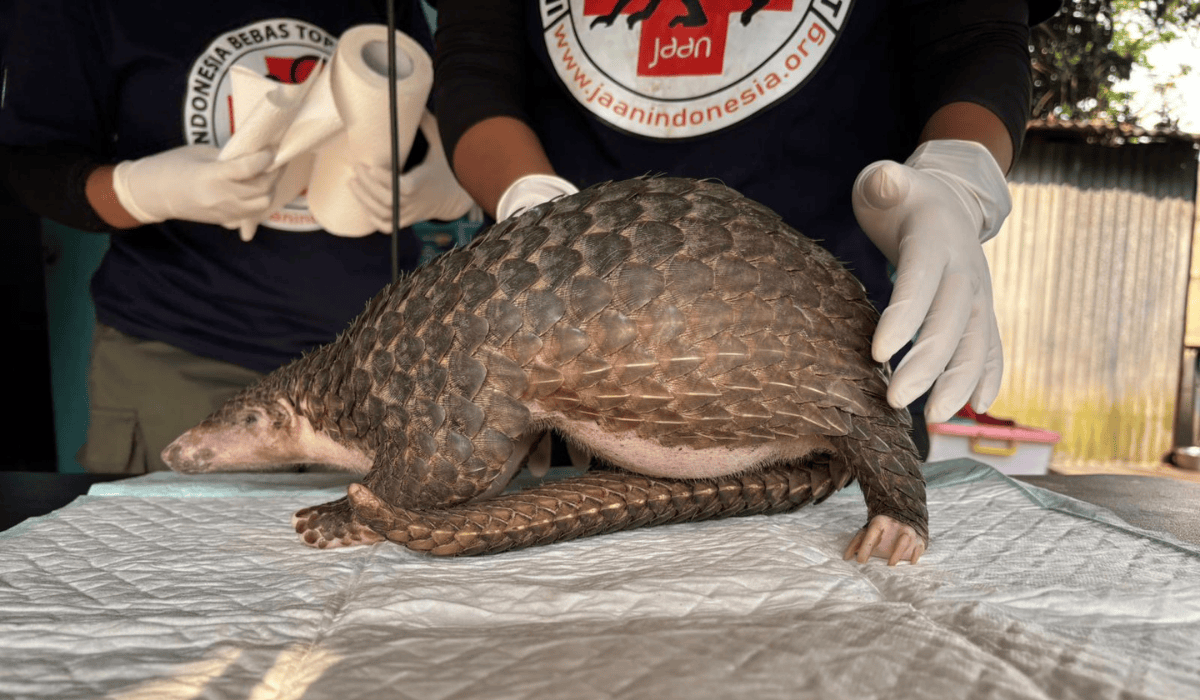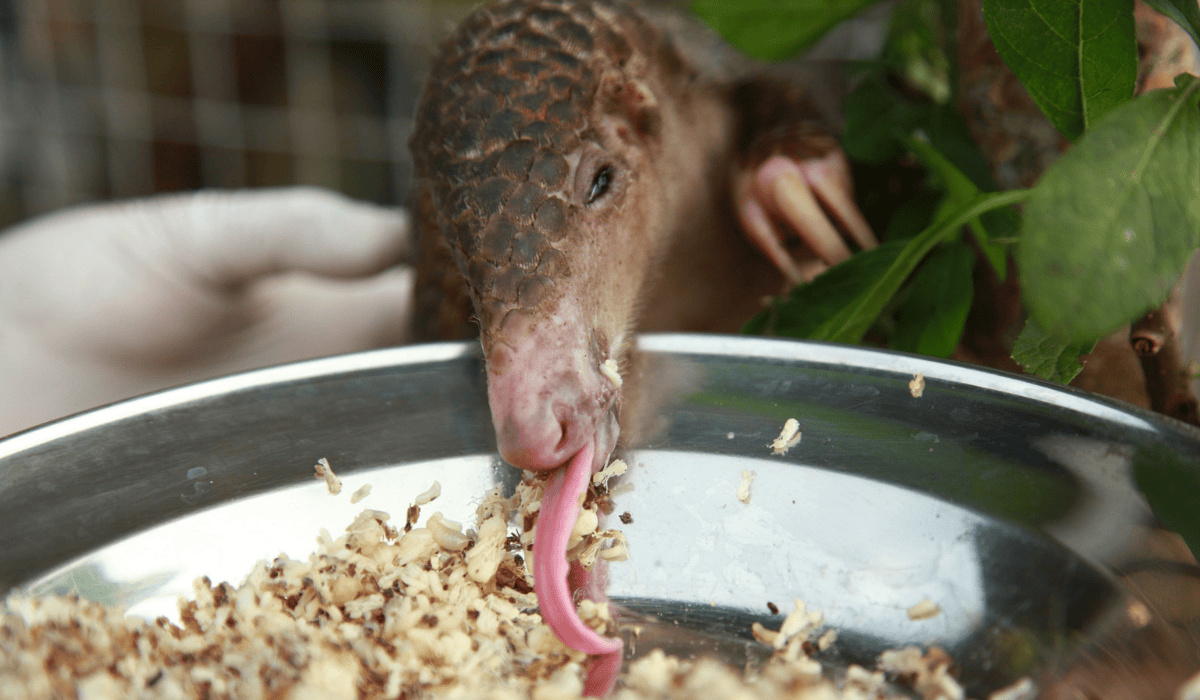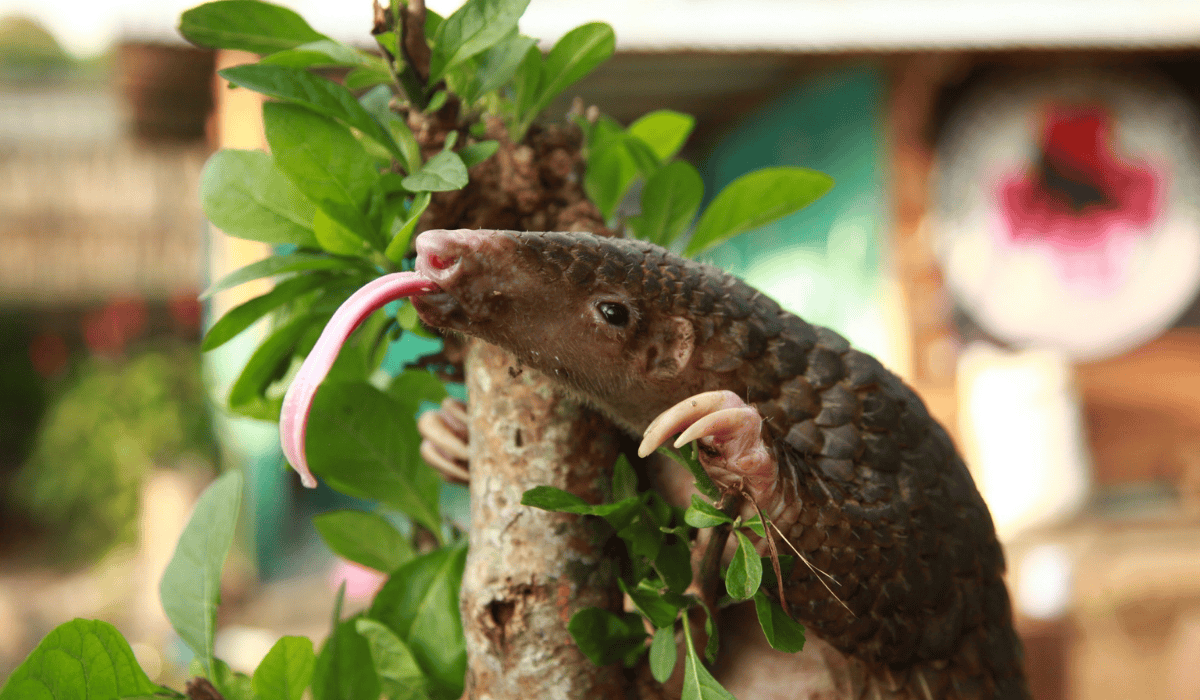
Rescued from poachers, Amba the pangolin’s story shows the urgent need to protect wildlife around the world.
In August 2025, a tiny, scaly animal named Amba’s life hung in the balance. Rescued by our partners at Jakarta Animal Aid Network (JAAN) in Central Java, Indonesia, Amba had been caught in the grip of the illegal wildlife trade—a fate shared by millions of pangolins worldwide. Sadly, another pangolin found during the same rescue didn’t survive, but Amba’s story is one of hope, resilience, and the impact of urgent conservation action.
Pangolins are unique among mammals. Covered in protective keratin scales—the only mammals to have them—they are small to medium-sized, nocturnal, and feed primarily on ants and termites. This diet makes them essential to the ecosystem, controlling insect populations naturally. Despite their importance, pangolins are the most trafficked mammals on the planet. Asian species, including the Chinese and Sunda pangolins, have declined by more than 90% in just a few decades.
The demand for pangolins comes primarily from Traditional Chinese Medicine (TCM), where their scales have historically been promoted as an ingredient. Although China removed pangolin scales from its approved TCM list in 2020, exceptions remain, keeping illegal poaching and trade alive. Pangolins are also sought after for meat and the wild pet industry, making them highly vulnerable to exploitation.
Indonesia is at the heart of this crisis. As Asia’s largest supplier of wildlife products and the 26th largest supplier of wildlife products globally, the country’s geography and maritime trade networks have facilitated a highly organized illegal wildlife trade. The Sunda pangolin, in particular, is at extreme risk, traded by the ton in scales and as live animals. Indonesia is also a hub for smuggling pangolins from Africa, amplifying the pressures on these extraordinary animals.
Amba was rescued thanks to months of monitoring, investigation, and the collaboration of JAAN with local authorities. Information from traders led to the arrest of a specialist poacher in Ambarawa, where authorities confiscated 80 kilos (176.37 pounds) of pangolin scales and rescued Amba.
Taken to JAAN’s rescue and rehabilitation center, Amba received the medical treatment and care he needed. Covered in ticks but otherwise healthy, Amba quickly began to thrive. Since his rescue, he has become confident, curious, and playful, earning the affectionate title of “escape artist” as he digs through the sand in his enclosure and enjoys feasting on ant nests.
Over the next year, JAAN, in collaboration with World Animal Protection, will ramp up this critical work—tackling illegal pangolin trade through a three-phase approach: investigation, arrest, and release.
As for Amba, our hope is that he will soon return to the wild, fully rehabilitated and free to live as nature intended, and that we are able to save more animals like Amba from the fate of poachers.
Amba’s story is a reminder of the incredible resilience of animals, but also of the urgent need for global action. By supporting organizations like World Animal Protection and JAAN, we can fight the illegal wildlife trade, protect individuals like Amba, and ensure that future generations can witness the beauty and importance of pangolins in our world.
By joining The Wild Side today, World Animal Protection can be ready to rescue at a moment’s notice. Your generous support allows us to give animals like Amba the chance to live, thrive, and return home to the wild.


